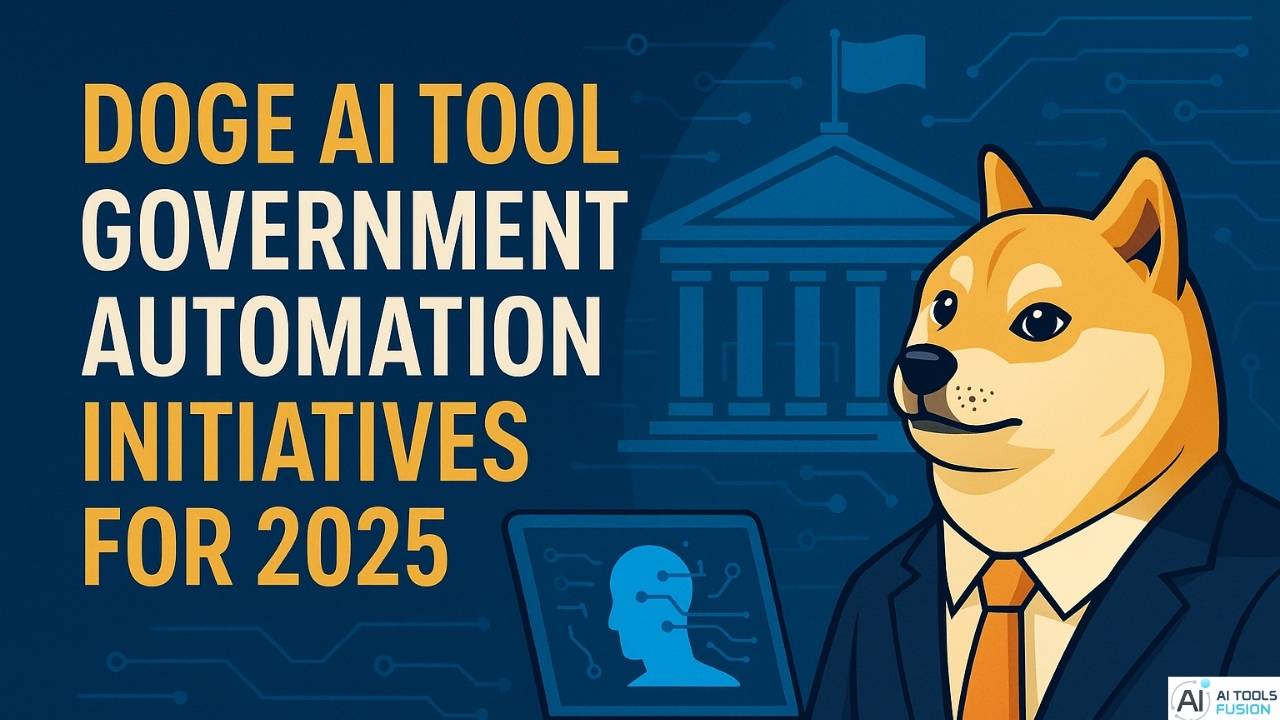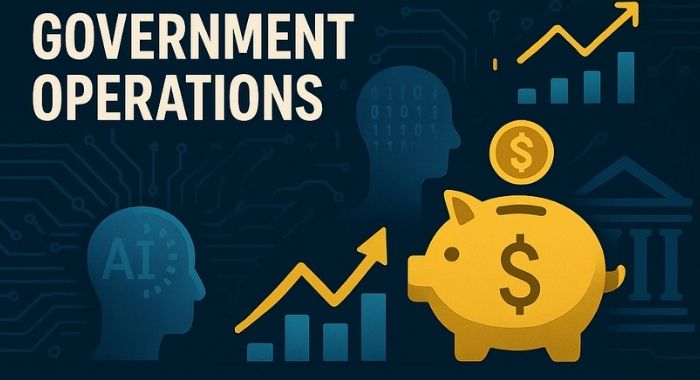Exploring DOGE AI Tool Government Automation Initiatives for 2025

DOGE AI tool government automation initiatives for 2025 are ushering in an era where technology and governance intersect with unprecedented velocity. As global leaders grapple with the complexities of automation, this groundbreaking initiative is poised to redefine how governments operate and serve their citizens. Central to this transformation, the DOGE AI Tool examines its potential to enhance efficiency, transparency, and accessibility within governmental frameworks. By exploring these pivotal automation initiatives, readers will gain insight into the future landscape of public service and AI’s pivotal role in an era where technology and governance intersect with unprecedented velocity.
Table of Contents
Understanding the Role of DOGE in AI Deployment for Government Automation
Transformative Application of AI
The DOGE AI Tool Government Automation initiative, spearheaded by Elon Musk’s team, aims to overhaul federal operations through advanced AI deployment. By utilizing tools like GSAi, DOGE intends to reshape bureaucratic processes, enhancing efficiency while drastically cutting budgets. However, this ambitious plan requires careful oversight to prevent potential ethical and operational pitfalls.
How AI Can Be Used in Government: Transformative Potential and Key Applications
Enhanced Efficiency and Service Delivery
Artificial Intelligence (AI) has the potential to transform government operations by automating workflows and enhancing efficiency fundamentally. By integrating the DOGE AI Tool Government Automation, various processes such as document processing, record-keeping, and fraud detection become exceedingly faster, reducing administrative burdens while maintaining precision. This allows governments to allocate resources towards more strategic objectives as noted by Rocket.Chat.
Improved Decision-Making Capabilities
AI revolutionizes decision-making within government by analyzing vast datasets, providing insights that are crucial for creating informed policies in areas like healthcare, public safety, and infrastructure management as discussed by Becker Digital. Through predictive analytics and data-driven insights, governments can foresee potential crises, enabling proactive measures for disaster management and public health planning.
Citizen Engagement and Public Services
AI-driven tools, such as chatbots and virtual assistants, markedly improve citizen interactions with government services by offering real-time responses and information accessibility. This shift not only democratizes service delivery but also expands the reach of public resources, ensuring end-users receive appropriate information promptly, significantly enhancing transparency and accountability as identified by IBM.
Each of these applications underscores the transformative potential of AI in redefining government operations, positioning AI as a key enabler of future-ready governance.
Analyzing the Specific Government Functions Being Automated by DOGE AI Tool
Streamlining Administrative Processes
The DOGE AI Tool Government Automation initiative is redefining government workflows by automating routine administrative processes. From managing public records to automating tax filings, this tool boosts efficiency, reduces human error, and speeds up services. By leveraging artificial intelligence, governmental agencies can refocus human resources on more complex tasks, ultimately improving service delivery and public sector efficiency.
Economic Implications of AI Integration in Government Operations

Potential for Efficiency and Cost Reduction
The integration of the DOGE AI Tool Government Automation by 2025 could reform government operations by reducing costs and inefficiencies. By automating routine tasks and enhancing productivity, AI offers opportunities for streamlining processes significantly. This could lead to decreased discretionary spending and improved financial operations, as governments manage budgets more accurately and allocate resources efficiently.
Impact on Employment and Workforce Adaptation
While AI promises increased efficiency, it also has critical implications for the workforce. There is a potential shift in labor demand, requiring employees to adapt by acquiring new skills. Consequently, governments must foster a workforce skilled in AI technologies, ensuring a balance between workforce reduction and productivity gains.
Budgetary and Revenue Effects
The economic impact extends to government budgets and revenues. AI can enhance tax compliance, potentially increasing revenues while reducing improper payments. Conversely, the technology’s implementation costs and the risk of individuals exploiting AI for fraudulent activities pose challenges to achieving net savings.
Privacy and Data Security in AI-Powered Government
Data Privacy Concerns
The integration of AI within governmental frameworks accentuates privacy challenges, necessitating massive datasets that could reveal personal information through profiling. This raises significant concerns around unauthorized access and cyber vulnerabilities. Striking a balance, governments enforce stringent privacy laws like GDPR and the CCPA, aiming to protect citizens’ data rights in AI-driven decision-making processes.
Technological Advancements
Government automation via the DOGE AI Tool Government Automation emphasizes AI’s role in enhancing privacy through advanced technologies—differential privacy, federated learning, and homomorphic encryption—enabling secure data insights while preserving confidentiality. These privacy-enhancing technologies bolster the framework required for safeguarding citizen data amidst evolving threats.
Governance and Compliance
Central to achieving robust privacy protocols is the adherence to legal frameworks like the AI Bill of Rights. These directives mandate privacy-by-design practices and automated impact assessments, ensuring compliance. Such measures foster transparency and accountability, crucial for maintaining public trust in AI-empowered government services.
Social and Public Trust Concerns with Government AI Use
Public Skepticism and Trust Issues
Public skepticism surrounding DOGE AI Tool Government Automation arises from a lack of trust in AI’s transparency and accountability. Americans express particularly low support for government AI use, despite not having the lowest overall trust in their government. Ensuring a human oversight presence within AI processes may enhance public trust and address fears of opaque decision-making practices as per findings reported.
What Is the Best AI for Government Contracting?
Assessing Top AI Tools
Choosing the best AI for government contracting involves evaluating tools like Procurement Sciences and GovDash, known for their comprehensive contract solutions. With features such as automated proposal generation and predictive analytics, these tools optimize strategic decision-making and enhance efficiency, setting a benchmark in the DOGE AI Tool Government Automation space.
Future Scenarios for AI’s Role in Government Administration
AI-Enhanced Policy Making
The integration of AI into government administration by 2025 promises revolutionary capabilities, especially in policy making. AI will significantly enhance data analysis capacities, offering policymakers nuanced insights. This will prove crucial for informed decision-making, optimizing urban transportation systems, and predicting economic trends. By enabling predictive policymaking, governments can forecast social, economic, and environmental trends for proactive responses, such as implementing job training programs or pollution control measures.
Advanced Citizen Engagement
Looking forward to 2025, AI’s role in transforming government-citizen interaction cannot be understated. Tools like chatbots will make public services more accessible and responsive, as they streamline communication and enable real-time public sentiment analysis. This evolution aligns policies with citizen demands more effectively, enhancing service delivery and fostering a trusting governmental relationship as explained by Becker Digital.
Efficient Regulatory Compliance
AI will also optimize regulatory compliance in future governmental environments. Automated systems will manage the monitoring and enforcement of regulations, significantly improving transparency and accountability across various sectors. This increased efficiency will ensure laws and policies are upheld accurately, fostering a governance landscape characterized by trust and diligence as outlined by Digital Defynd.
Expert Opinions on the Benefits and Risks of Government AI
The Benefits of Government AI
DOGE AI Tool Government Automation in 2025 presents palpable advantages. Experts envision AI’s ability to enhance productivity, streamlining government processes through predictive analytics, fraud prevention, and cybersecurity enhancements. According to the Congressional Budget Office, AI can bolster economic growth by complementing workers and increasing efficiency, thus potentially increasing government revenues.
Risks and Concerns
Despite the promising benefits, experts highlight significant risks. As noted by the Brookings Institution, the public remains wary, expressing concerns about job displacement and ethical dilemmas such as data privacy and algorithmic biases. Both experts and the public favor stricter regulations to mitigate these uncertainties.
What Is the DOGE AI Tool for Government Automation?
Understanding DOGE AI Tool
The DOGE AI Tool is designed to revolutionize government automation, enabling more efficient and effective operations. By leveraging artificial intelligence, this tool aims to streamline bureaucratic processes, reduce redundancies, and enhance service delivery within federal agencies. Its implementation could reshape government operations significantly, aligning with the Department of Government Efficiency’s (DOGE) broader goals to reduce costs and improve transparency.
Conclusion
In conclusion, the DOGE AI Tool’s integration into government automation initiatives by 2025 represents a pivotal advancement in public sector efficiency and service delivery. By streamlining processes and enhancing decision-making capabilities, this technology promises to redefine how governments operate, offering more responsive and transparent services to citizens. As the world stands on the brink of this technological evolution, it is crucial for policymakers, technologists, and stakeholders to collaborate closely, ensuring that the deployment of AI-driven solutions is both ethically grounded and strategically sound. Ultimately, the successful implementation of the DOGE AI Tool could herald a new era of innovation in governance.
See Also: How Payday Loans at eLoanWarehouse Can Aid Financial Emergencies
